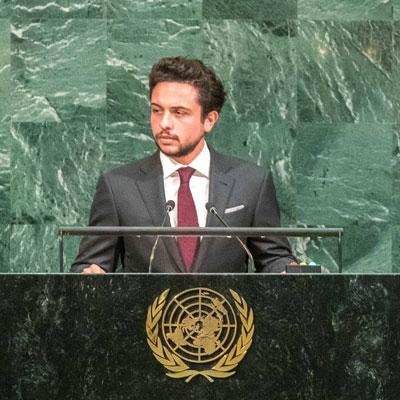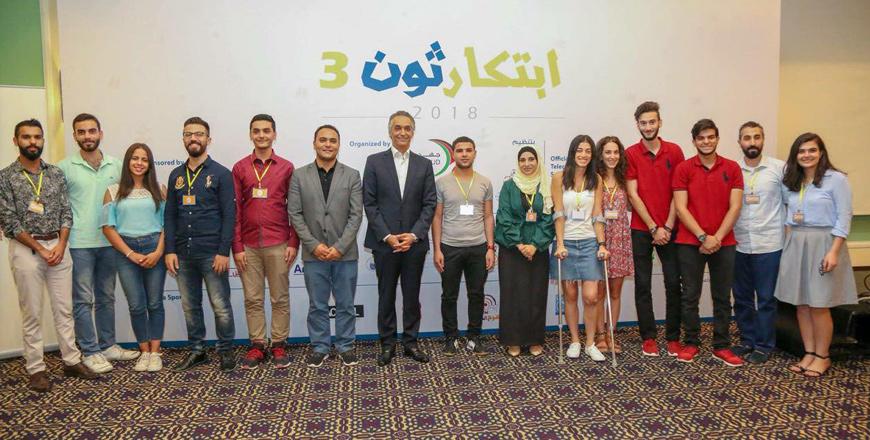You are here
Young Jordanian innovators participate in ‘Ebtekarthon’ at Dead Sea
By Fares Al Abed - Aug 14,2017 - Last updated at Aug 14,2017
AMMAN — Dozens of young Jordanian innovators participated in the Youth Innovation Forum (Ebtekarthon), which took place from August 10 till 12 at the Dead Sea.
Under the patronage of HRH Princess Basma, and marking International Youth Day, the forum was organised by UNICEF in partnership with the Jordanian Hashemite Fund for Human Development (JOHUD), a statement from the organisers said.
Besan Abdel Qader, the Youth and Adolescent Development Officer at UNICEF, told The Jordan Times in an e-mail interview that the theme for this year’s International Youth Day was “Youth Building Peace”, which celebrates young people and their contribution to preventing conflict, while also contributing to social justice and peace.
She said that the forum aimed to promote a young entrepreneurial community in Jordan to support peace building, by encouraging “talented young people” to develop and build their ideas and creations.
“Featuring more than 70 young participants and innovators from all the Kingdom’s governorates, the conference was an extremely productive forum for young entrepreneurs to connect, share and learn from each other’s experience,” Abdel Qader said.
She also noted that the forum provided a “valuable opportunity” for all the young entrepreneurs to meet and interact with key entrepreneurs, while also learning and exploring potential collaborations and partnerships.
Abdel Qader explained that 25 teams presented their projects, which tackled the different needs and priorities of young people. The winning projects at the conference were “Colshiless” in first place, with Nasser Badareen as team leader; “Edugate” in second place, with Moath Qwaqneh as team leader; and “TBJO” in third place, with Fadi Khlefat as team leader.
“Colshiless”, which means “everything is less” in a combination of Arabic and English, carried out a project which aimed to build a pipe leakage detector in order to conserve water, Abdul Qader stressed.
“Countries face problems with long water pipes, for example of 40km or 50km. When there is a leak or a hole in the pipe, time and money will be spent to find where it is. Our project helps find the problem by placing a detector with a sensor at every 2 or 3km, divided into areas. When the detector in a certain area gives a signal that there is a problem, it reduces the search area to 2 or 3km instead, of 40 or 50km,” Badareen said.
The second place winner, the “Edugate” project, is based on the use of augmented reality technology to support building integrated educational curriculum that simulates technological development and supports the learning process in schools, Abdul Qader added.
“TBJO” (Tourism box JO) is a web design which will be used to attract tourists by giving them “real life experiences” of tourist sites in Jordan, with access to all the services that they may need, she concluded.
Related Articles
AMMAN — Young people from across the board agreed that HRH Crown Prince Hussein said what world needs to hear and was speaking their own min
AMMAN — Some 100 young entrepreneurs have recently convened in the Dead Sea area, where they presented their innovative business ideas at th
AMMAN — Youth Ministry on Tuesday launched the 2021 National Forum for Young Entrepreneurs and Innovators under the theme “Entrepreneurship

















